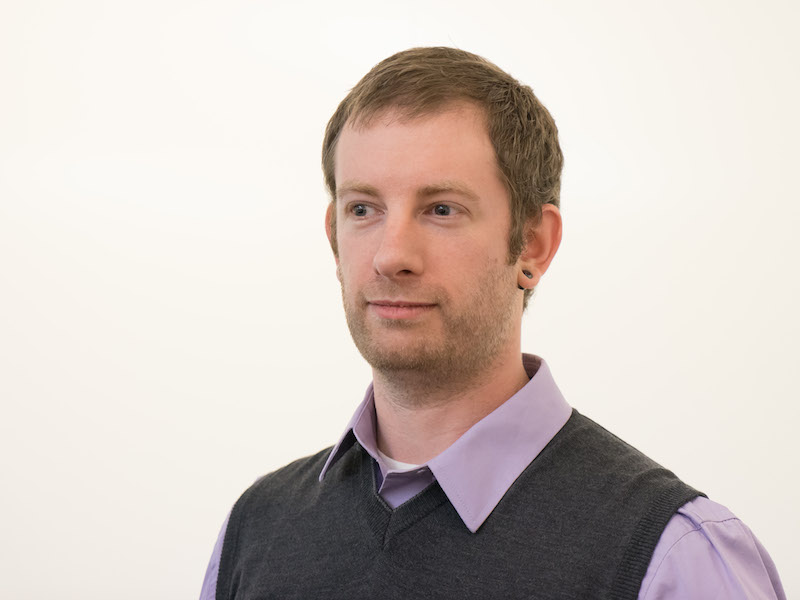Hadley Wickham wins the prestigious 2019 COPSS Presidents’ Award
Hadley Wickham, Chief Scientist at RStudio, is the recipient of the 2019 COPSS Presidents’ Award. This award is presented annually to a young member of one of the participating societies of COPSS in recognition of outstanding contributions to the profession of statistics. The award citation recognized Wickham “for influential work in statistical computing, visualization, graphics, and data analysis; for developing and implementing an impressively comprehensive computational infrastructure for data analysis through R software; for making statistical thinking and computing accessible to large audience; and for enhancing an appreciation for the important role of statistics among data scientists.”
Dr. Wickham graciously agreed to be interviewed by Huixia Judy Wang, Secretary/Treasurer of COPSS:
Which part of your job do you like the most?
I love the freedom to work on problems that I think are the most important. I love the mix of thinking, programming, and educating that enables me to discover problems, propose solutions, and then get them into the hands of real people. I love working from home, and having the ability to spend focused hours on challenges that need deep attention. I love working with a talented team with diverse skills and backgrounds. Compared to my previous job in academia, I love that I don’t have to write grants or attend faculty meetings!
What advice would you give to young people who are entering the profession as PhD students and Assistant Professors at this time?
Consciously work to improve your programming and marketing skills. In your career, you are likely to receive little (or no!) formal training in these areas but they are force multipliers: writing software allows many others to take advantage of your ideas, and learning how to market yourself and your work ensure that people know that you’re making something that can help them. Academics sometimes see marketing as something dirty, but if people don’t know that your work exists, it can’t help them!
What one aspect of your research do you wish was more widely known in the scientific community?
The importance of tidying your data: regardless of how you have recorded your data, your analysis will go much more smoothly if you first “tidy” it up, making sure that each column is a variable (and hence each row is an observation). Getting your data into this form up front will save you a bunch of time if you’re using the tidyverse, R in general, or pretty much any other data analysis tool.
Who are your most significant mentors? How did/do they impact your career?
Di Cook (Professor of Business Analytics at Monash University) was my PhD advisor, and I have the rare privilege of knowing that there’s nowhere in the world that would have been a better fit for me. As well as giving me the freedom to work on topics that were pretty weird for statistics, Di also taught me pretty much everything I know about the art and science of data analysis. Di has done groundbreaking work in visualization, including tools for interactive graphics and graphical inference. She is a wonderful mentor and many of her students have gone on to be very influential. Di is a role model for me as she has a passion for learning, and has continued to master new skills throughout her career.
Also, JJ Allaire (CEO of RStudio). Soon after I joined RStudio, I decided that I need to really learn C++ so that I could write faster code, and JJ was a skilled and enthusiastic mentor. One of the greatest compliments I’ve ever received is JJ telling me that I’m a more-than-intermediate C++ programmer! JJ is not just an amazing programmer; he’s also a skilled technical writer, and a savvy entrepreneur. JJ has helped me substantially improve my ability to make an impact on the world through software.
Why were you drawn to statistical computing and software development?
I was drawn to computing at a young age, particularly using computers to help organize data. When I was in high school, I converted my mum’s handwritten recipes into a database (which still exists today at http://recipes.had.co.nz) and throughout my career I’ve fascinated by how to turn raw data into rich, informative displays that lead to better decisions. Trying to help people make better visualizations with less pain and more joy has lead me to push my work further and further towards the raw data.
Anything else you’d like to share about our profession?
I have found data science to be a deeply rewarding field. These days I spend most of my time developing tools for others to do data science, but I still love getting my hands dirty with real data. I really enjoy the combination of technical and human skills that are required to be an effective data scientist.
Finally, what are your hobbies/interests beyond statistics?
Outside of statistics, I love to bake, barbecue, and make cocktails. I also read a lot of science fiction and fantasy, and practice yoga.
A little (more) about Hadley Wickham
Hadley is Chief Scientist at RStudio, a member of the R Foundation, and Adjunct Professor at Stanford University, the University of Auckland, and Rice University. He builds tools (both computational and cognitive) to make data science easier, faster, and more fun. His work includes packages for data science (the tidyverse: including ggplot2, dplyr, tidyr, purrr, and readr) and principled software development (roxygen2, testthat, devtools). He is also a writer, educator, and speaker promoting the use of R for data science. Learn more on his website, http://hadley.nz.

Comments on “COPSS Presidents’ Award: Hadley Wickham”